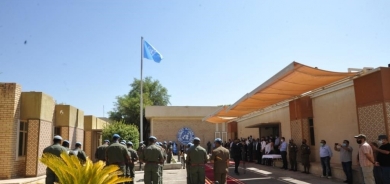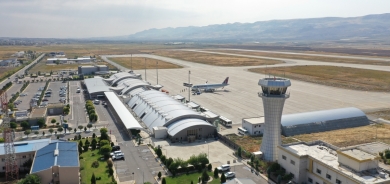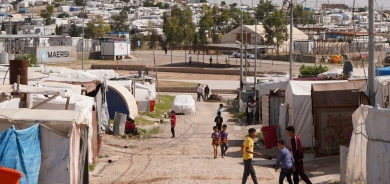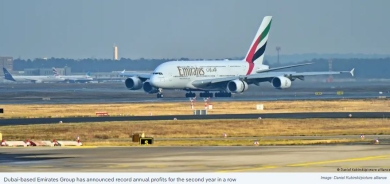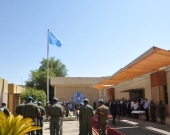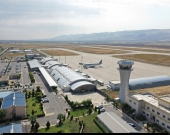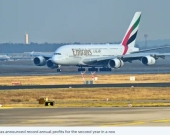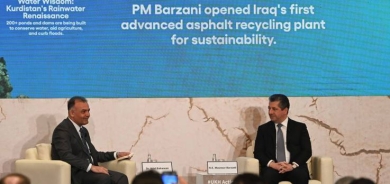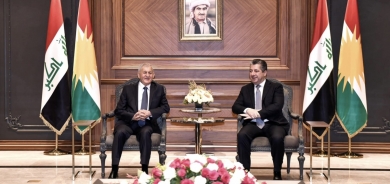Iraqi government discusses alternatives to Strait of Hormuz
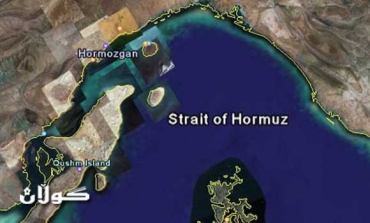
The Oil and Energy Commission in the Iraqi council of Representatives and concerned experts made this conclusion yesterday as tensions continue to mount over Iran's threat to close the vital shipping lane in response to EU sanctions on its oil exports and central bank.
Commission member Farhad Atrushi told AKnews that Iraq is exporting 80% of its oil through the Strait of Hormuz and 20% across Turkey, and any problems from tensions over the strait means a major impact on the Iraqi economy.
Around 1.7 million out of 2.2 million barrels of Iraqi oil passes daily from the strait, which is also the major path of oil in the world.
"Immediate and fast solutions are not available," said Atrushi, also a member of the Kurdish Blocs Coalition.
"Alternatives require the development of strategic solutions such as the addition of another Turkish pipeline to export oil and the expansion of the current line to accommodate one or two million barrels per day (bpd) instead of the current 400,000 bpd."
Former oil minister, Ibrahim Bahr al-Ulum told AKnews of another possibility: "The government has a plan to establish the Syrian oil pipeline through investment companies and can be completed in a year, or a year and a half."
However Atrushi thinks this is unlikely. "The other alternative is the Syrian oil line but this is unlikely at present because of the security and political situation taking place in Damascus," he said.
"Another alternative is exporting through Jordan to the port of Aqaba and the Iraqi ambassador is considering the discussion of this issue with Jordan."
The Iraqi government decided yesterday to approve the adoption of the recommendations of the Committees of Economic Affairs and Energy Affairs to study the possible outcomes of the crisis in the Arabian Gulf and its implications for Iraq.
The advisers were asked to study the issue from all aspects of its impact on the budget, currency, oil, ration card and electricity.
"Strategies and studies developed by the Ministry of Oil and the government give the need to adopt a mechanism of diversification of oil export, and Iraq opening up to the Arab world will help it negotiate with Saudi Arabia," said former oil minister Ibrahim Bahr al-Ulum.
"For example, we could restore the Iraqi pipeline established in the eighties, which can export nearly a million and a half million barrels per day to the Saudi port of Yanbu on the Red Sea. This is considered one of immediate solutions."
"Quick action is useful to avoid the damage on the Iraqi economy if the Strait of Hormuz was closed.
The Iraqi - Saudi pipeline extends to about 626 km and transfers Iraqi oil to the ports of Yanbu city in Saudi Arabia. It was established in 1986 by the Mitsubishi Japanese company and the OTF Hungarian company.
The Iraqi government's greatest hopes appear to lie with the Saudi Arabia, a country that up until recently has experienced strained relations for years.
"Some point to the possibility of resorting to the use of tucks to transport oil through trucks but this is not practical and the priority is given to the Saudi oil line," said Ulum.
Iraqi-Saudi relations have been stalled since 2003 - and is reminiscent of the situation which followed the Second Gulf War in 1990. This is in sharp contrast to the positive relations during the 1980-1988 Iranian-Iraqi war, when Saudi Arabia was one of Iraq's most supportive Arab state.
The Saudi government has not provided any official explanation for the lack of diplomatic representation with Baghdad, despite the American forces, that toppled the former regime in 2003, came through Saudi borders with Iraq from the west and south.
Economic experts have said there is an urgent need for the Iraqi government to find quick alternatives to export oil instead of the Strait of Hormuz.
Hussein Hamad, an economic expert, said "The oil ministry has said it plans during the coming years to increase its oil production to more than 6 million barrels per year.
"But the plan to increase the production must be associated with finding new outlets for oil export."
AKnews


